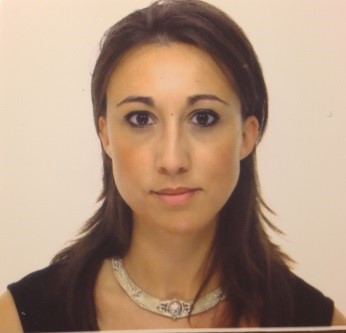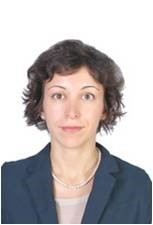Studying at the University of Verona
Here you can find information on the organisational aspects of the Programme, lecture timetables, learning activities and useful contact details for your time at the University, from enrolment to graduation.
Academic calendar
The academic calendar shows the deadlines and scheduled events that are relevant to students, teaching and technical-administrative staff of the University. Public holidays and University closures are also indicated. The academic year normally begins on 1 October each year and ends on 30 September of the following year.
Course calendar
The Academic Calendar sets out the degree programme lecture and exam timetables, as well as the relevant university closure dates..
| Period | From | To |
|---|---|---|
| I semestre | Oct 1, 2019 | Jan 31, 2020 |
| II semestre | Mar 2, 2020 | Jun 12, 2020 |
| Session | From | To |
|---|---|---|
| Sessione invernale d'esame | Feb 3, 2020 | Feb 28, 2020 |
| Sessione estiva d'esame | Jun 15, 2020 | Jul 31, 2020 |
| Sessione autunnale d'esame | Sep 1, 2020 | Sep 30, 2020 |
| Session | From | To |
|---|---|---|
| sessione estiva di laurea LM7 | Jul 13, 2020 | Jul 13, 2020 |
| Sessione autunnale di laurea LM7 | Oct 12, 2020 | Oct 12, 2020 |
| Sessione invernale di laurea LM7 | Mar 11, 2021 | Mar 11, 2021 |
| Period | From | To |
|---|---|---|
| Festa di Ognissanti | Nov 1, 2019 | Nov 1, 2019 |
| Festa dell'Immacolata | Dec 8, 2019 | Dec 8, 2019 |
| Vacanze di Natale | Dec 23, 2019 | Jan 6, 2020 |
| Vacanze di Pasqua | Apr 10, 2020 | Apr 14, 2020 |
| Festa della Liberazione | Apr 25, 2020 | Apr 25, 2020 |
| Festa del lavoro | May 1, 2020 | May 1, 2020 |
| Festa del Santo Patrono | May 21, 2020 | May 21, 2020 |
| Festa della Repubblica | Jun 2, 2020 | Jun 2, 2020 |
| Vacanze estive | Aug 10, 2020 | Aug 23, 2020 |
Exam calendar
Exam dates and rounds are managed by the relevant Science and Engineering Teaching and Student Services Unit.
To view all the exam sessions available, please use the Exam dashboard on ESSE3.
If you forgot your login details or have problems logging in, please contact the relevant IT HelpDesk, or check the login details recovery web page.
Should you have any doubts or questions, please check the Enrollment FAQs
Academic staff
 maurizio.boscaini@univr.it
maurizio.boscaini@univr.it
Study Plan
The Study Plan includes all modules, teaching and learning activities that each student will need to undertake during their time at the University.
Please select your Study Plan based on your enrollment year.
1° Year
| Modules | Credits | TAF | SSD |
|---|
2 modules among the following2° Year activated in the A.Y. 2020/2021
| Modules | Credits | TAF | SSD |
|---|
Three modules among the following| Modules | Credits | TAF | SSD |
|---|
2 modules among the following| Modules | Credits | TAF | SSD |
|---|
Three modules among the following| Modules | Credits | TAF | SSD |
|---|
Legend | Type of training activity (TTA)
TAF (Type of Educational Activity) All courses and activities are classified into different types of educational activities, indicated by a letter.
Molecular Genetics and Genomic Tools for Plant Breeding (2019/2020)
Teaching code
4S008241
Credits
6
Language
Italian
Also offered in courses:
- Plant Molecular Genetics of the course Master's degree in Agri-Food Biotechnology
- Plant Molecular Genetics - Genetica molecolare teoria of the course Master's degree in Agri-Food Biotechnology
- Plant Molecular Genetics - Miglioramento genetico teoria of the course Master's degree in Agri-Food Biotechnology
- Plant Molecular Genetics - Genetica molecolare laboratorio of the course Master's degree in Agri-Food Biotechnology
Scientific Disciplinary Sector (SSD)
AGR/07 - AGRICULTURAL GENETICS
The teaching is organized as follows:
miglioramento genetico teoria
Genetica molecolare teoria
Genetica molecolare laboratorio
Learning outcomes
This course will provide to students knowledge of the main genetic and molecular strategies for crop breeding. This strategies are either assisted by molecular markers and genomics, or relies on gene expression analysis or on the production and application of transgenic plants. This course will also provide means for studying plant genetic variability, and will describe methodologies currently used for the identification of genes and new sources of variability, to be applied in plant breeding. Most modern plant biotechnologies and new breeding technologies as well as their possible applications to increase food-crop productivity and quality will also be presented.
Program
INTRODUCTION TO MOLECULAR GENETICS.
Molecular genetics for increasing crop yield;
Green revolution, Harvest Index;
GAI and the green revolution genes;
Plant architecture and yield;
Perennialism.
PLANT GENOME
Evolution of plant genomes;
Transposable elements and their role on gene expression;
Genomes of organelles and interaction with nuclear genome.
GENE FUNCTION ANALYSIS.
Mutant collections;
Tilling;
Gene silencing;
RNA interfering.
EPIGENETICS
Histone modifications;
DNA methylation;
Epigenetic regulation in plant responses to the environment.
PLANT GENETIC TRANSFORMATION
Expression of heterologous genes in plants (increase yield/improve quality);
Genome editing in plants.
Discussion on Genome editing and the cultivation of transgenic plants (Prof.ssa Furini).
---------------------------------------------------------------------------------------------------------------
HIGH TROUGHPUT GENOTYPING
Molecular markers for genomics:
SNP genotyping: SNPChips, RADSeq, GBS, resequencing;
GENETIC DISTANCE EVALUATION
Genetic distance; Index for genetic distance evaluation;
Biodiversity; Centers of origins and domestication; Evolution studies;
Individual and varietal identification applied to different crops.
METHODS IN MAPPING OF GENES/QTLS FOR INTERESTING TRAITS IN CROPS
New genetic variability sources: mutagenesis, ibridization and poliploidization;
Segregation and production of genetic maps on biparental crosses;
Exploiting maps for genes and QTL mapping; Positional cloning of genes and QTLs
Linkage disequilibrium; Mapping by association (GWAS);
Markers assisted selection (MAS).
Discussion of genomics applied to crop breeding examples (Prof. Bellin)
------------------------------------------------------------------------------------------------------
LABORATORY (1CFU): mapping of a gene of interest for a trait and functional characterization by expression analysis (Profs. Furini and Bellin)
Examination Methods
Acquisition of subject cover by the whole course will be verified through oral examination, which will include questions both on the theory and laboratory parts.
Type D and Type F activities
| years | Modules | TAF | Teacher |
|---|---|---|---|
| 1° 2° | Python programming language | D |
Maurizio Boscaini
(Coordinator)
|
Career prospects
Module/Programme news
News for students
There you will find information, resources and services useful during your time at the University (Student’s exam record, your study plan on ESSE3, Distance Learning courses, university email account, office forms, administrative procedures, etc.). You can log into MyUnivr with your GIA login details: only in this way will you be able to receive notification of all the notices from your teachers and your secretariat via email and soon also via the Univr app.
Graduation
Deadlines and administrative fulfilments
For deadlines, administrative fulfilments and notices on graduation sessions, please refer to the Graduation Sessions - Science and Engineering service.
Need to activate a thesis internship
For thesis-related internships, it is not always necessary to activate an internship through the Internship Office. For further information, please consult the dedicated document, which can be found in the 'Documents' section of the Internships and work orientation - Science e Engineering service.
Final examination regulations
List of theses and work experience proposals
| theses proposals | Research area |
|---|---|
| Dinamiche della metilazione del DNA e loro contributo durante il processo di maturazione della bacca di vite. | Various topics |
| Miglioramento del profilo nutrizionale e funzionale di sfarinati di cereali mediante fermentazione con batteri lattici | Various topics |
| Risposte trascrittomiche a sollecitazioni ambientali in vite | Various topics |
| Studio delle basi genomico-funzionali del processo di embriogenesi somatica in vite | Various topics |
Attendance
As stated in the Teaching Regulations for the A.Y. 2022/2023, attendance is not mandatory. However, professors may require students to attend lectures for a minimum of hours in order to be able to take the module exam, in which case the methods that will be used to check attendance will be explained at the beginning of the module.

 +39 045 802 7839
+39 045 802 7839


















